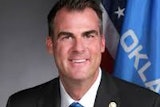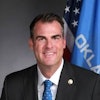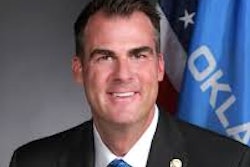As the umbrella organization for higher education, the American Council on Education is often at the center of the major issues facing colleges and universities, Dr. Robert Atwell, who has announced his retirement as president, and Dr. Reginald Wilson, senior scholar with ACE, have been two of the leading proponents in the country for affirmative action.
In this interview, they discuss the challenges facing higher education access for students of color.
What do you consider to be the most commonly hold misconception about what ACE can do about affirmative action in American higher education?
ATWELL: We are based on persuasion, moral persuasion. But we don’t have authority over anybody. Do we have influence? Yes, I think we do. So we have seen our role to be one of attempting to lead by persuasion, but not anything else. And I think that we’ve done that on this issue with some success. We also play a role of trying to identify good practices and trying to frame the arguments about affirmative action or about diversity.
Then to say that ACE could do more is an unfair statement?
ATWELL: I think we could always do more. I wouldn’t pretend to say that we’ve done all that we can do, And I understand those who say that we should be even more aggressive than we’ve been. It does have to be remembered that we are a membership organization of college and university presidents who will pay us only so long as they think we represent their interests. They will abide a certain amount of leadership from us, but if we get too far out in front of them on any given issue and turn around and look back and there’s nobody there, that’s a problem.
WILSON: And we have to recognize that ACE has been in the forefront of this issue for a number of years. So, yes, we can do more. But ACE has been right out in front.
In 1988, ACE issued the call for a consensus on affirmative action and suggested a variety of ideals and ideas that should be advanced. How would you assess the response from the higher education community?
WILSON: Well, I get out to the campuses every now and then, and I hear people still referring to that document — the One Third of the Nation Report — even now. I think it had considerable influence on higher education. And with the board of directors of ACE reiterating their firm stand on affirmative action last year, I think it just reinforces the fact that ACE has been out there and has been saying these things, very supportive things, for a long while — even while the national sentiment has been getting somewhat more conservative.
I think we have to elevate the level of discussion about this even more. The decibel level has to be raised a bit because of the kind of political fallout we’ve gotten out of what’s happened at the University of California and the Hopwood decision in Texas,
I don’t think that we have produced as much evidence as we are going to need to produce. I think we are going to have to frame a very, very careful argument with evidence on why it is so important,
Would part of the more aggressive profile that you are articulating Include engaging groups like the National Association of Scholars?
ATWELL: I spoke to the National Association of Scholars [recently] and reiterated my commitment to affirmative action to an audience that was not terribly sympathetic. They were very polite, but not very sympathetic to what I had to say. Secondly, I serve on an AAUP commission looking at what happened in California, and I think, without any question, that commission is going to come out with quite an articulate defense of affirmative action in admissions at the University of California, as elsewhere, and then talk about how the regents committed a very serious breach of shared governance.
I don’t think that we have in any sense sat on the sidelines. I think we’ve been there all the time in all the ways that we need to, but I think it’s ceaseless. It just goes on and on, and right now, with affirmative action and diversity under attack politically, we have to step forward even more.
On the campuses themselves, what would you consider to he the biggest Impediment to progress on affirmative action?
WILSON: I think it’s partly the [governing] board, because the board is subjected to the political process. Whether it’s appointed or elected, it’s the board of a public institution and the legislature of the state that can put pressure on affirmative action. And partly, it’s the students. The students reflect the discord that is in the society at large and express those opinions when they get on campus.
In addition, the president, the administration and the faculty are caught in the middle between the political pressure and the student pressure. And it’s up to the administration and the faculty to lead in that regard.
What have been some of the major mistakes that affirmative action proponents have made?
ATWELL: We let the opposition characterize it as [being in favor of] racial preferences. We have let that lie on the table and not really made the case for the social and educational benefits derived from diversity. We’ve let the other side characterize what this is all about.
In going all the way back to the Defunis and Bakke cases, were there any signs on the horizon that affirmative action was going to be significantly Challenged or were you blindsided by the lawsuits and policy challenges?
ATWELL: I think that the ’94 election certainly changed things — and some of the state elections even before that — with some of those governing boards becoming increasingly conservative. Blindsided is maybe too strong a word, but it came up fairly fast. I have always thought that ever since Bakke, that sooner or later there would be major challenges to what some people characterize as the concept of group rights. That was sort of bound to happen. As you look at this thing you can say that the UC regents action, in and of itself, did not precipitate a groundswell across the nation. Hopwood certainly did. You put the two together and you’ve got a kind of groundswell.
So what you are saying is that the higher education leadership dropped the ball in terms of taking this case to the people?
WILSON: I think it would be fair to say that they didn’t make the case.
What would you describe as some of your most vexing problems in terms of getting your Institutional members to take affirmative action seriously?
WILSON: I think that they have always taken it seriously, but they have been circumspect as to whether they should be vocal or not, particularly in the public institutions. For example, I said to a public college president, “You’ve got a magnificent record. Why don’t you publicize it?” And he said, “No, I’ve got to worry about the legislature.” He’s got to worry about the reactions of the student body. He wouldn’t publicize it. Some of the leaders of the private institutions, because they are not as subject to political pressures, have been quite outspoken on this issue.
In looking at the role of HBCUs in all of this, are we willing to say that since Howard University generates the vast majority of Black Ph.D.’s followed by Clark Atlanta — and North, Carolina A&T will soon be producing more Black Ph.D.s in engineering than anybody else — why don’t we go with them as opposed to hitting our heads against the wall at Berkeley, Texas or North Carolina? Why is that so unpalatable to the higher education community?
WILSON: Well, you did mention some of the leaders in doctoral production, but one of the leaders in doctoral production is University of California-Berkeley, which produces a large number of Black doctorates. And the University of Texas-Austin produces a large number of Hispanic doctorates. I would say a good deal of that progress is due to affirmative action.
You can’t place the Ph.D. burden on the Clark Atlantas and the Howards because we have to remember that all the HBCUs, collectively, educate about 16 percent of the Black students. Most Black students are in white universities. We’ve got to maintain them there. And we’ve got to educate them there,
So you aren’t willing to prescribe a process that the trade-off for integration is going with the proven winners? Dr. Edward Fort, the chancellor of North Carolina A&T, made that argument very eloquently when he got his doctoral program in engineering at North, Carolina A&T. He said that North Carolina State and the University of North Carolina-Chapel Hill are never going to produce the numbers of Black Ph.D.s that he could. Therefore, give me the money, give me the resources, and I will show you how to produce Black Ph.D.s. The state of North Carolina bought it. At some point are you willing to say that he had the right idea?
Wilson: You have to do both of those things.
But realistically and economically, they aren’t going to do both in large enough numbers to make any difference.
ATWELL: You talked about Ph.D. programs, but I’d want to go back to the undergraduate situation, To use UCLA Chancellor Chuck Young’s argument, UCLA is a better university because it has diversified. It simply is. That’s the argument for not relying exclusively on the HBCUs or the Hispanic-serving institutions. It is good for the predominantly white institutions to do this and it does not mean for a moment that you are talking about unqualified people.
Many in our society still have an abhorrence to minority group rights at the expense of white debts, but that’s some of the reason white people write checks to the United Negro College Fund. But it just doesn’t fly when they run into the cries of reverse discrimination or group rights.
ATWELL: We have to concede that if a white student didn’t get into an institution that she figured that she was better than somebody that did get in, then she and her family are going to he mad and there is not a whole lot you could say or Reggie or I could say that would change their mind.
I think that what we haven’t done a very good job of is selling something I believe in very deeply — I don’t think you can rank any applicant pool by some quantitative score. It just doesn’t work that way. All we’re talking about here in the case for affirmative action is the ability to continue to take race, among other things, into consideration.
It’s almost like the Head Start argument. We know it works, but Head Start’s never really been properly funded. And that’s what the HBCUs say, which is the basis for the Fordice case. In effect, “You never gave us the money. Give us more of the money and we can do a hell of a lot more than those resistent white institutions.”
WILSON: But the historical circumstances have changed. When they first existed, you had 75 percent of the Black population living in the South and going to those institutions. It might have been a viable solution then. Now you have less than 50 percent living there. The rest are all over the place. You could never get them concentrated in these schools.
The problem is that in the absence of special programs, outreach, etc., the white schools just haven’t been able to got the numbers up. They didn’t get the numbers up until they had affirmative action or diversity or outreach programs.
WILSON: It’s sort of like the recent Kansas City busing decision which in essence said, “There’s no point in doing this. Let’s upgrade the Black schools.” And that’s a very persuasive argument. I was very much in favor of the Kansas City decision because it didn’t seem like there was any place for them to go.
Many in the Black community are now saying integration is not worth it and all of this hassle. Why, many are saying, aren’t we just given the money without having beaten against the “wall of integration.”
WILSON: Well, for one thing, they are never going to do that, We had a conference on the desegregation of higher education about ten years ago, shortly after I came here. It was an off-the-record session, but a chancellor of a major southern university said, “Look, we are never going to fund the Black schools equal to the white schools. I don’t care what happens.” And that’s reality.
ATWELL: You’ve got to do both of these things. You have to more adequately fund the HBCUs. It’s really deplorable what’s happened here over the years, You’ve got to have predominantly white institutions producing a better record than they have produced. It’s not an either/or situation.
Are some Black scholars naive about what the price is going to be for integration of our southern public colleges?
WILSON: I think so. I think that they thought — at least noted psychologist Kenneth Clark did, because he’s been the most open about it — I think that he thought that the white colleges would integrate faster than the Black colleges would. Remember that Judge John Pratt said don’t place as large a burden on the Black colleges as on the white colleges because the Black colleges did not discriminate in the first place. But the Black put colleges are now 17 percent non-Black, and [that percentage is] growing. The court orders that have been placed on them, such as Tennessee State, 50 percent Black-50 percent white, have not been placed on the University of Tennessee. So it’s blatantly discriminatory against the Black schools.
Nowhere do the fights unfold more vigorously than when we talk about the curriculum. What can ACE do to get over that hurdle?
WILSON: I think you have seen over recent years a lot of curricular changes in the direction of inclusion and multicultural studies — and that kind of thing, I think that it’s been very good. I think that the opposition has tended to mischaracterize that, just as we have talked about some mischaracterization of what affirmative action is.
Do you think a multicultural curriculum should be mandatory?
ATWELL: The one thing that a national association ought to stay away from is saying that here is a curriculum that ought to be mandated. Any organization in Washington, DC, that tries to do that would not get very far. I think that is what we tried to do in the One Third of the Nation Report…to say that diversity is an across-the-board situation. It requires a commitment from the top. It includes the curriculum, it includes campus climate, it includes employment, it includes admissions and so forth.
But the reality is that disenfranchised groups just don’t have the institutional clout to make things happen. They don’t have the faculty numbers, the faculty senate, the governing student bodies and this kind of thing.
ATWELL: Look at the Stanford University situation. I wouldn’t have imagined that the Stanford faculty is as comprised numerically of the underrepresented minorities to any great degree — I’m sure they’ve improved upon it — and yet Stanford, the Stanford faculty moved in multicultural directions after very, very careful and thoughtful consideration.
Well, let’s take name of the ones that are being debated now. Texas A&M and the Georgia University system are voting differently from Stanford.
ATWELL: It’s going to be an up-and-down situation, but I think that progress, however slow, is being made to make the curriculum more inclusive, and I think it’s going to be hard, slogging work.
Can’t the accrediting associations leverage their clout a little bit better?
ATWELL: Whether an accrediting body would ever remove the accreditation of an institution, or even put it on probation, after having done exactly zip in the area of an inclusive curriculum, I don’t know. But I think that they can play a very important and persuasive role. I think in the Western region they have. But they got in trouble for doing it.
Accrediting agencies don’t mind telling colleges that they’ve got to get more test tubes and more books in the library. What is it about the American experience that gets people’s hackles up so much about race?
WILSON: Do you want to hear the history of the United States? Well, it’s just like the Hopwood case. They jump on the race thing, but they put legacies aside, they put athletes aside. All of these are preferences, There are preferences for brothers and sons of alumni, preferences for wealthy alumni, preferences for athletes and all this. And then you talk about preferences for Blacks and the red flag goes up and everybody jumps on it. That’s the history of the United States.
Bob, you’ll soon be retiring from ACE. What do you want your legacy to be in terms of this issue, affirmative action?
ATWELL: We stepped up to the plate and took it on. We took it on in a number of settings. We spent a lot of time referring back to the One Third of the Nation Report…but I think that we have done it in accreditation, I think we have done it in a number of areas and I feet that it’s been one of the most important things that we have done during my time here.
What do you think the chances are that your successor will be a person of color?
ATWELL: Well, I’m not involved in that search. You’d need to ask the chair of the search committee.
A couple of years ago we did an article in which we took the education organizations headquartered at DuPont Circle to task on their own individual, and collective, diversity profile. Have you mode strides In that area In terms of the leadership and people in executive and senior roles?
ATWELL: If you look at the secretariat, for example, which is 38 associations, you see modest progress, particularly in the area of gender, but not a whole lot in the area of minorities. If you look at this association, we’ve done rather well in the mid-level ranks and in the lower-level ranks, and we have not done terribly well in the senior levels of this organization — in part because we have not gotten much turnover. So, I think that commitments are there. If we had more turnover, there would be more opportunity.
So you would lay your lack of senior-level progress on the doorstep of the lack of turnover?
ATWELL: I think we have done pretty well in the mid-level and below, in this organization. That’s the only one I can speak for.
Beyond the offices of minority affairs, do you have any significant senior leadership here?
ATWELL: Yes, sure. And we will have more over time. One of the things I want to say about that is that in the commitments in these areas, we don’t see the minority issue as being the sole responsibility of the offices of minorities in higher education. They are very important in the scheme of things, but it is a responsibility that we all share. I, for example, in my role on a corporate board, feel very responsible for issues of board diversity and that kind of thing. So I think there are many people in this organization who work this issue every day in every way who are not in the office of minority higher education. So just as there has been sometimes a tendency to think in colleges and universities you point at an affirmative action officer who is a minority, and you’ve addressed the problem and that’s it. You don’t have to do anything more. We don’t look at it that way. And we haven’t done that here.
But a lot of people criticize your record because you are headquartered in the nation’s capital where there is such a large minority pool.
ATWELL: Our record is pretty good here in the District of Columbia.
You have a new leader coming to NAFEO [National Association for Educational Opportunity]. What do you see as the prospects in terms of making more happen then has historically happened through ACE and NAFEO?
ATWELL: Well, I hope very much that we can bring NAFEO into this building, I have talked to [President-elect] Henry Ponder, he actually raised the subject with me, and I said that I would try to move a few mountains to try and get him in here. That has not been resolved yet, but that would be just great. Because we do need a closer working relationship, He wants that and I would want that.
COPYRIGHT 1996 Cox, Matthews & Associates
© Copyright 2005 by DiverseEducation.com















